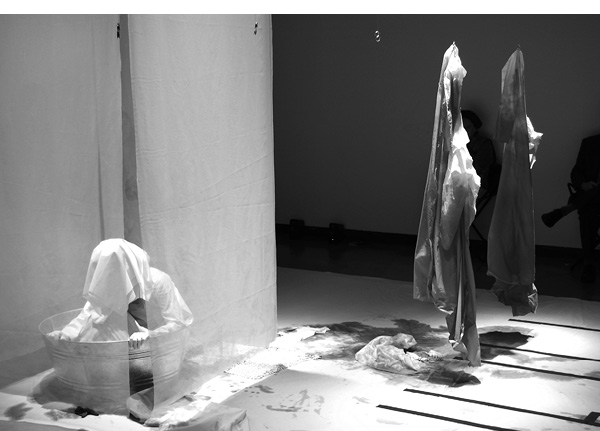
RED PRAYERS
first performed on November 21, 2013
Montclair State University, Montclair, NJ
performed twice in 2013
NATASHA JOZI
Montclair, NJ
213344684n213344684a213344684t213344684a213344684s213344684h213344684a213344684a213344684b213344684l213344684e213344684@213344684g213344684m213344684a213344684i213344684l213344684.213344684c213344684o213344684m
natashajozi.com
RED PRAYERS
NATASHA JOZI
Migration leads to racial, linguistic, ethnic and religious diversity. Living inside the 21st century discourse on religious diversity, Muslims all around the world have developed a considerable amount of self-awareness regarding their identities. There is a huge amount of desire to be a devout and sincere Muslim. This has surfaced through dichotomies in identity for the Muslim in the East as well as for the Muslim diaspora in the West. Soon after a Muslim steps into a globalized consumer market, he discovers the magnanimity of self-awareness. The Muslim of today is forced to step out into his world wearing religion on his sleeve. Being a Muslim is becoming a brand, only one that he does not choose, but that is in fact slapped on his face by the global, cultural and social discourse.
Post migration, an immigrant realizes an urge to freely define and demarcate a space in which to practice their sanctity. Massive migrations in the past (e.g. Irish Catholics, Jews from Eastern Europe, Hindus and Sikhs from South Asia, Black Caribbeans and African Christians) have demonstrated this desire for cultural and religious self-preservation through dialogue and practice.
Furthermore, Muslims not only desire the freedom to express their religion, but also entail the space for self-preservation. Islam, primarily a performative religion, requires a certain amount of space for its ritualistic practices. Prayer, Halal Food and Mosques help make up a complete Momin (good Muslim).
“Red prayers” presents and explores the dichotomy of this “space” the performer dwells in, exploring and letting the viewer experience the shift in worlds after migrating from the East to the West. Fusing eastern values and western influences, the performer expresses the internal / external, personal and collective dichotomies during her struggle of self-awareness. Ideas of Halal (Lawful) and Haram (Forbidden) and how they affect the individual are explored. It is a performance about sharing the conundrum of personal religious space making and collective social space making. It is a juxtaposition of the desire to consume alcohol and the desire to offer prayer, but only in how they both remain acts of desire and never get fully performed.
The performance welcomes and invites the viewer to step into a space filled with sensorial triggers. Smell, taste and sound engulf the space, setting a meditative realm where time seems to have stopped.